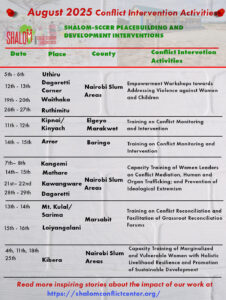By: Judith Akedi MA, Esther Kibe MA & Moses Osiro MA
Through Shalom-SCCRR’s School/Educational Development support and Peace Education intervention, we are empowering generations to face the future with confidence. We believe quality education enabled by our school/educational development projects, analytical skills in conflict transformation and peacebuilding techniques will be critical in achieving both local and global peace and development goals.
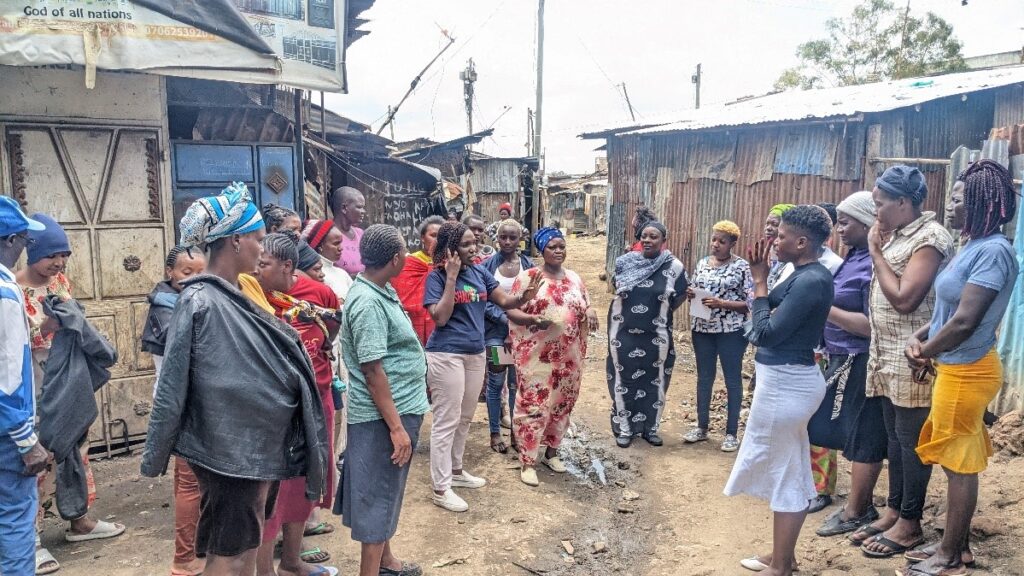
When individuals are empowered with quality and holistic education, communities equally become empowered to appreciate tolerance, interdependent-coexistence, collaboration, and cooperation in their joint development and sustainable positive peace. “Life as a student in the slums is very challenging because while I attend classes, I’m also expected to find manual jobs to fend for my family. Moreover, the life of a student in the slums is encompassed with multiple issues such as extreme poverty, unemployment, crime, drugs and substance abuse, and, negative peer pressure… this makes it very hard to achieve our academic dreams, Shalom is helping us beyond words,” Brian Onyango, a Shalom-SCCRR Peace Club member from Mathari Mixed Secondary School in Mathare slums.
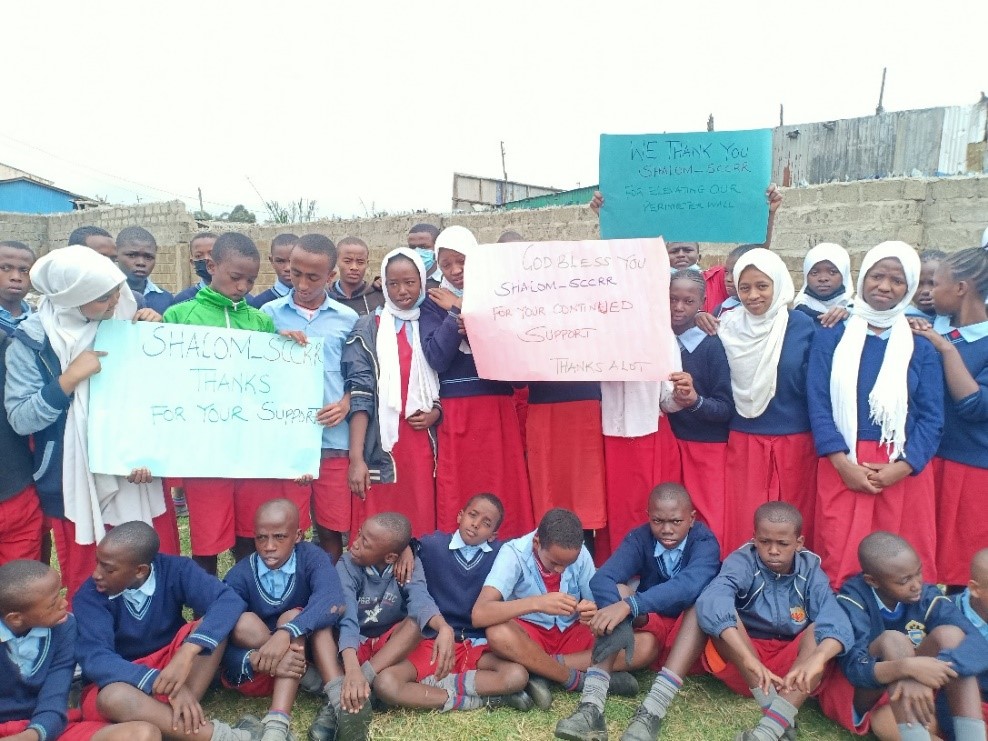
In Nairobi’s urban informal settlements (slums), Shalom-SCCRR has implemented 33 School/Educational Development Projects benefiting more than 14,000 pupils and students, particularly from poor and marginalized schools. This support includes Classrooms, Accommodation facilities, Construction Materials, Solar Lighting Systems, Hygiene and Sanitary facilities, Gender Sanitary Items, Text Books and Stationery, Desks, Clean Water Systems, Science Laboratory Equipment’s etc.
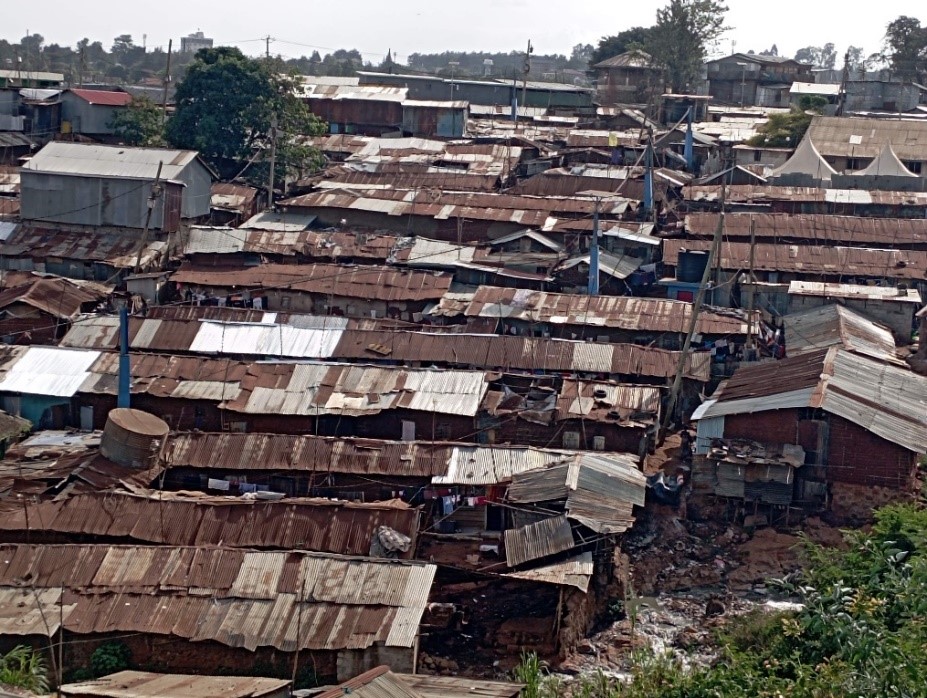
Teachers, parents, and pupils continually attest to the impact of the Shalom Peace Education Syllabus – ‘changing perceptions, attitudes, and behaviours among students by inculcating values such as cooperation, tolerance, respect and understanding among others. These values are fundamental in countering the narratives of ethnic hatred and violence and, further addressing the increasing problem of radicalization and religious ideological extremism within the slum environments’. (http://mural.maynoothuniversity.ie/9086/7/PD-Radicalisation-2017.pdf)
Education is inherent in the realization of peace. As such, schools play a vital role in shaping the minds and attitudes of students and inculcating within them a culture of peace which aspires for higher human and social values.
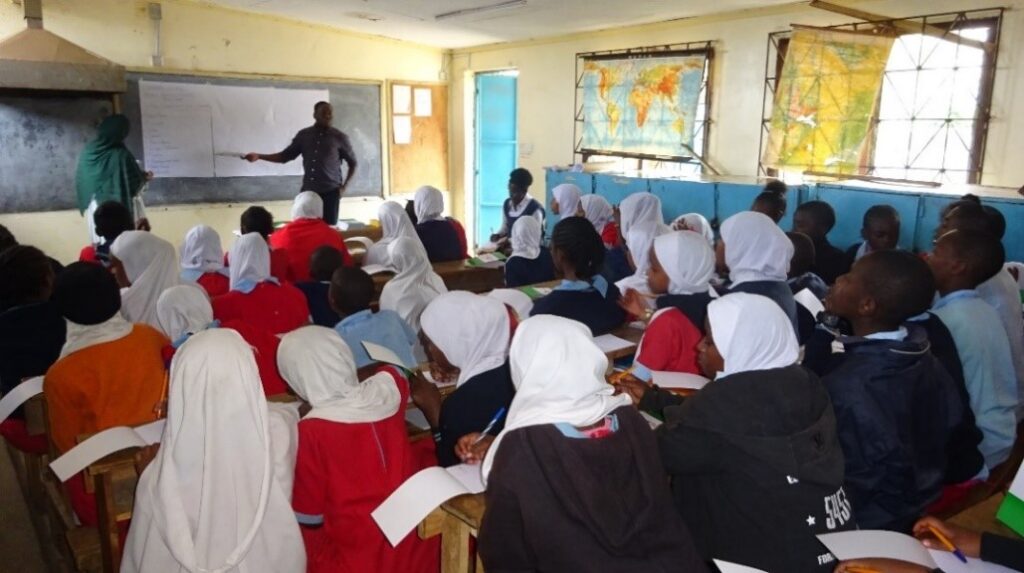
Mrs. Julie Wanjiku, the Head Teacher, Valley Bridge Primary School in Kariobangi, observes that, “The socio-economic inequality that surrounds pupils and students living in the slums makes them vulnerable and, sadly many of them end up homeless at a very young age. She further notes that, “often pupils are left with no choice but to engage in odd and risky jobs—where they are abused and sometimes end up being victims of human trafficking… I have witnessed lives of so many children ruined and their dreams shattered.”
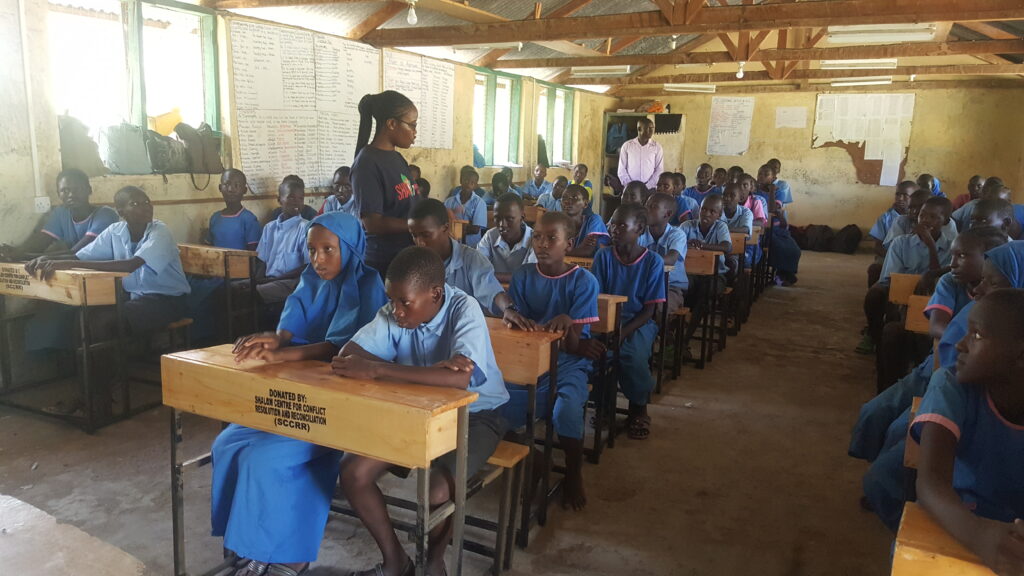
These complex issues have had major and adverse effects on schools. Shalom-SCCRR, in assisting learning institutions actuate the potential of the young generation vis-à-vis developing a culture of peace, has adopted peace clubs as a strategic transformative intervention strategy. The peace clubs are suitable and reliable for a through which peace education is taught or passed to pupils and students in schools.
In the year 2022, in all Shalom-SCCRR’s project intervention locations within Kenya, over 18,096 Pupils and Students benefitted from our Peace Education Syllabus implemented particularly in marginalized and violent conflict environments. We are implementing the syllabus through 49 established and supported Shalom peace clubs. These peace clubs have been empowered with knowledge and skills to implement conflict transformation and peacebuilding activities within their respective schools, neighbouring schools, and in their local communities.
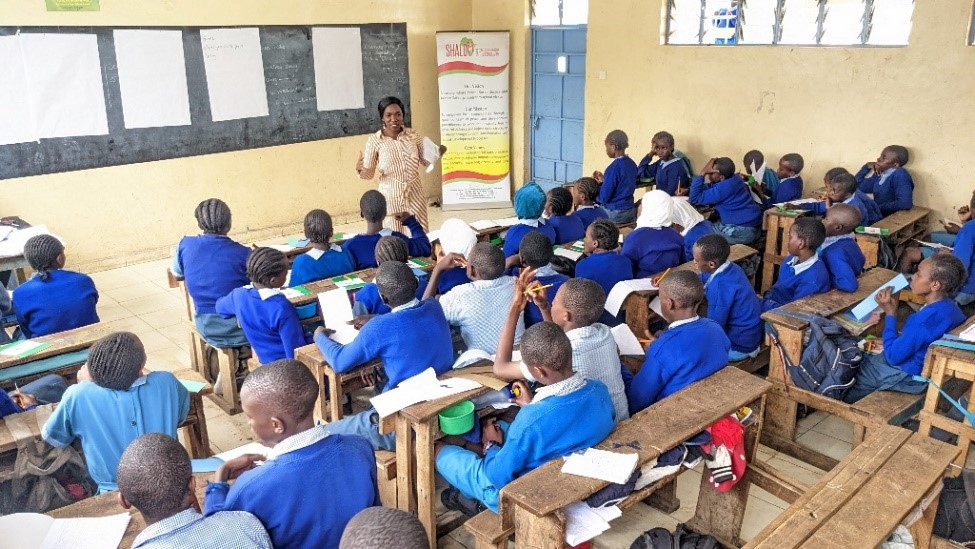
In Nairobi’s urban informal settlements/slums, namely: Kibera, Mathare, and Kariobangi, Shalom-SCCRR is offering peace education training to 6 schools. The strategy is implemented by building the capacity of Peace Club Patrons and Peace Club Members. Peace club members under the guidance of the patrons, are accordingly tasked to reach to the larger school population and immediate local community.
The impact of these peace clubs, as implemented by Shalom-SCCRR in collaboration with students and peace club patrons, has been immense. Some of the more recent successes include increased knowledge and awareness on matters of peace within the clubs, capacity and skill-building in handling conflict situations as well as increased number of members within the clubs. The net effect has been the realization of peace within the schools and the neighboring communities.

Mrs. Jane Aoko Okeyo, Starays Secondary School Director, commended the work of Shalom-SCCRR: “Shalom-SCCRR’s Peace Education in the school has had an incredible significant impact on our students. This is a result of the knowledge and skills they have attained through the peace education trainings and, activities implemented by the peace club members which positively influence their perceptions, attitudes and beliefs towards the ethnic and religious other.” She also noted that the program is not only bearing fruits in the school but also in the communities where the students reside.
We appreciate our donors, supporters and friends who generously provide the much-needed empowerment necessary in facilitating the realization of these life-giving initiatives. Through our continued work and efforts, these children and young adults have a future full of hope and they will actualize their full potentials. THANK YOU.
By:
Mrs. Judith Akedi Otsieno MA, Shalom-SCCRR Project Officer Nairobi and Women Projects
Ms. Esther Njeri Kibe MA, Shalom-SCCRR, Project Officer Marsabit and Women Projects
Moses Osiro MA, Project Assistant
Relevant Links
- Shalom-SCCRR (2023). 2022 Shalom-SCCRR Results and Achievements. https://shalomconflictcenter.org/2022-shalom-sccrr-results-and-achievements-2/
- Shalom-SCCRR. (2022). 2009-2021 Shalom-SCCRR Results and Achievements. https://shalomconflictcenter.org/2009-2021-shalom-sccrr-results-and-achievements/
- Shalom-SCCRR. (2023). Shalom-SCCRR 2022 Conflict Transformation and Peacebuilding Results & Achievements. https://shalomconflictcenter.org/2022-shalom-sccrr-conflict-transformation-peacebuilding-results-and-achievements/
- Shalom-SCCRR. (2023). 2022 Shalom-SCCRR School/ Educational Development Projects Results and Achievements. https://shalomconflictcenter.org/2022-shalom-sccrr-school-educational-development-projects-results-and-achievements/
- Shalom-SCCRR. (2023). Prof. Wanakayi K. Omoka’s Understanding of the Philosophy and Work of Shalom-SCCRR Recollected; Augmented with 2022 Results by the Dept. of Monitoring, Evaluation, Research, and Learning (MERL). https://shalomconflictcenter.org/recalling-prof-wanakayi-k-omoka-phd-understanding-of-the-philosophy-and-work-of-shalom-sccrr-augmented-with-2022-shalom-sccrrs-achievements-and-results/
- Devine, P. R. (2017). “Radicalization and Extremism in Eastern Africa; Dynamics and Drivers”, published in the Journal of Mediation and Applied Conflict Analysis, 4 (2): http://mural.maynoothuniversity.ie/9086/7/PD-Radicalisation-2017.pdf

- Moran, M. (2023). Ending conflict and promoting peace in Eastern Africa. https://www.ucanews.com/news/ending-conflict-and-promoting-peace-in-eastern-africa/101132
- Prof. Omoka. W. K and Devine, P. R. (2020). Human Rights are a Foundation of Shalom-SCCRR’s Conflict Resolution and Reconciliation Interventions. https://shalomconflictcenter.org/human-rights-are-a-foundation-of-shalom-sccrrs-conflict-resolution-and-reconciliation-interventions-2/
- Akedi, J. (2021). Shalom-SCCRR supporting the restoration of learning amidst Covid-19 effects: An account of Nairobi’s informal settlements (Slums). https://shalomconflictcenter.org/shalom-sccrr-supporting-the-restoration-of-learning-amidst-covid-19-effects-an-account-of-nairobis-informal-settlements-slums/
- Awed, A. (2021). The Girl-Child: Shalom-SCCRR Impacting Education & the Lives of Young Girls in Marginalized and Remote Locations in Eastern Africa. https://shalomconflictcenter.org/the-girl-child-shalom-sccrr-impacting-the-lives-of-young-girls-in-marginalized-and-remote-locations-in-eastern-africa/
- Kibe. E. (2018). Shalom Equips Peace Club Patrons in Nairobi with Peacebuilding Skills. https://shalomconflictcenter.org/shalom-equips-peace-club-patrons-in-nairobi-with-peacebuilding-skills/
- Shalom-SCCRR. (2022). Shalom Empowerment Center (SEC) Addressing Violence against Women and Children: Concept Document. https://shalomconflictcenter.org/eastern-africa-shalom-empowerment-center-sec-addressing-violence-against-women-and-children-concept-document/
- Moran, M. (2022). Shalom Chairman delivers lecture at Harvard Kennedy School. https://shalomconflictcenter.org/shalom-chairman-delivers-lecture-at-harvard-kennedy-school/
- Akedi, J. (2020). Briefing Paper No 1: A Conflict Analysis of Nairobi’s Informal Settlements. https://shalomconflictcenter.org/briefing-paper-no-1/
- Akedi, J. (2020). Thousands of Children and Families in Nairobi’s Korogocho Slum Benefit from Shalom-SCCRR Transforming Interventions. https://shalomconflictcenter.org/thousands-of-children-and-families-in-nairobis-korogocho-slum-benefit-from-shalom-sccrr-transforming-interventions/
- Molumby G. (2022). Resolution of conflict requires hope and research. https://www.irishpost.com/news/resolution-of-conflict-requires-hope-and-research-238003
- Kibe, E. (2022). Fr. Patrick Devine PhD, Lecture at the National Justice & Peace Network (NJPN) Conference 2022, UK. https://shalomconflictcenter.org/fr-patrick-devine-phd-lecture-at-the-national-justice-peace-network-njpn-conference-2022-uk/
- Awed. A. (2018). Shalom Working Towards a Future for Children Free from Engaging in Conflict.https://shalomconflictcenter.org/shalom-working-towards-a-future-for-children-free-from-engaging-in-conflict/
- Kibe, E. (2022). Shalom-SCCRR’s International Chairman, Rev. Dr. Patrick Devine addresses the Harvard Kennedy School, USA. https://shalomconflictcenter.org/shalom-sccrrs-international-chairman-rev-dr-patrick-devine-addresses-the-harvard-kennedy-school-usa/

